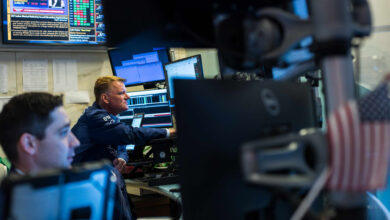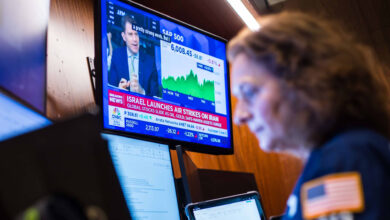18% of Las Vegas home deals fell through in April — but is it a sign the market is turning in buyers’ favor?

Home buyers in Las Vegas are facing a growing trend of walking away from contracts, with increasing numbers reconsidering their purchases before closing. This shift is driven by a combination of factors including high interest rates, financial anxiety, and an oversupplied market.
According to a recent Redfin report, 14.3% of U.S. homes under contract in April were canceled, marking the second-highest April cancellation rate on record, behind only the spike seen in 2020 during the pandemic. In Las Vegas, the rate was even higher at 18.6%, placing the city eighth among major U.S. metros for canceled deals.
Higher mortgage rates and skyrocketing home prices are major contributors to this trend. The average 30-year fixed mortgage rate reached 6.85% in June, more than double what it was during pandemic lows. This significant increase can add hundreds, even thousands, to monthly payments when factoring in taxes and insurance.
Inflation is also impacting prospective buyers, making it challenging for some to secure final approval and leading others to rethink their ability to afford the total cost of homeownership, including HOA fees and insurance premiums.
Broader economic and political instability, such as layoffs, tariffs, and federal policy uncertainty, are causing buyers to hesitate. A recent Redfin survey revealed that nearly 1 in 4 Americans have scrapped plans for a major purchase this year due to tariffs.
The housing market in Las Vegas is experiencing a surge in listings, giving buyers more options and less pressure to settle. With inventory at a five-year high nationally, buyers are becoming increasingly confident in holding out for better deals.
While Las Vegas may be an extreme case, the underlying issues of affordability and market saturation are national in scope. From Riverside, California to Atlanta, Georgia, buyers across the country are reevaluating their purchases.
Redfin economists predict some relief later in 2025, with home prices expected to drop modestly as demand softens. In the meantime, buyers are encouraged to do their research, stay flexible, and be prepared to walk away if the numbers don’t add up.
Overall, this trend suggests that while the housing market may be cooling, affordability remains a challenge for many Americans. It’s important for buyers to stay informed, be proactive, and adjust to market conditions in order to make the best decisions for their financial well-being. The world of technology is constantly evolving, and with it, our lives are changing in ways we never thought possible. From the rise of artificial intelligence to the development of smart homes, technology is shaping the way we live, work, and interact with the world around us.
One of the most exciting advancements in recent years is the development of virtual reality (VR) technology. VR technology has the potential to revolutionize the way we experience the world, allowing us to immerse ourselves in digital environments that feel incredibly lifelike.
One of the most popular applications of VR technology is in the world of gaming. Gamers can now step into their favorite virtual worlds and interact with characters and objects in ways that were previously impossible. The level of immersion that VR technology provides is unlike anything we’ve ever seen before, and it’s changing the way we think about gaming.
But VR technology isn’t just limited to gaming. It has the potential to revolutionize a wide range of industries, from healthcare to education to entertainment. In healthcare, VR technology is being used to train surgeons and medical students, allowing them to practice complex procedures in a safe and controlled environment. In education, VR technology is being used to create immersive learning experiences that engage students in ways traditional teaching methods cannot.
In the entertainment industry, VR technology is being used to create truly immersive experiences for moviegoers and music fans. Imagine being able to step into a virtual concert and feel like you’re standing right in front of your favorite band, or being able to watch a movie and feel like you’re part of the action.
The potential applications of VR technology are truly endless, and as the technology continues to evolve, we can expect to see even more exciting developments in the years to come. Virtual reality is no longer just a futuristic concept – it’s quickly becoming a reality, and it’s changing the way we experience the world around us.





